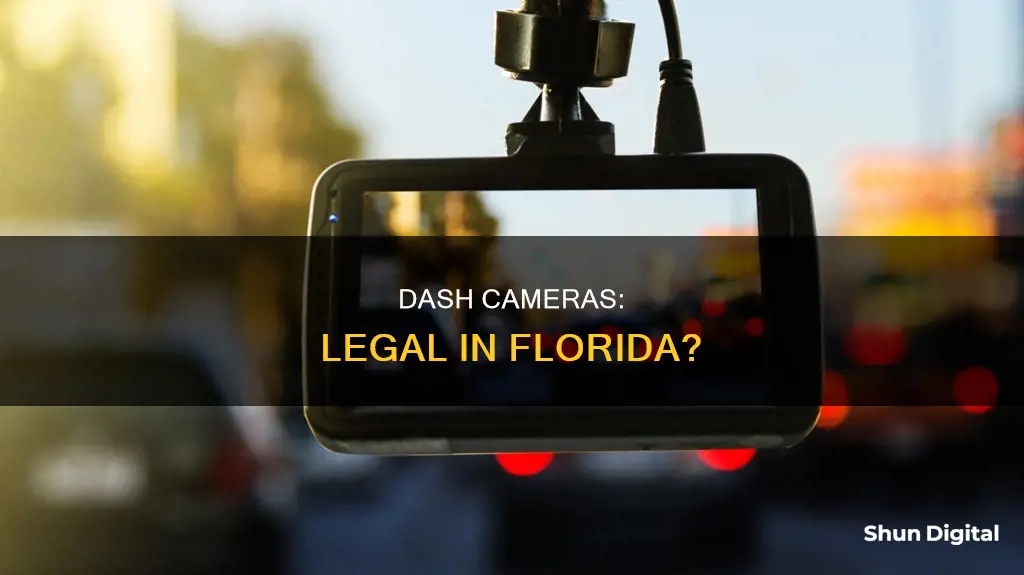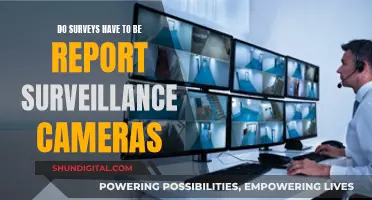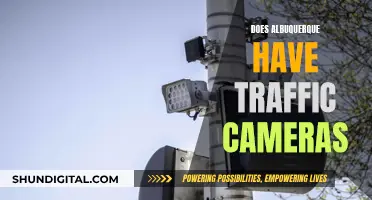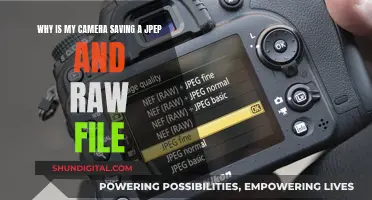
Dashcams are becoming increasingly popular in Florida and across the US, and for good reason. They can be incredibly useful in the event of a road accident, providing evidence to support insurance claims and personal injury lawsuits. But are they legal?
The short answer is yes, dashcams are legal in Florida. However, there are a few laws you should be aware of before installing one in your vehicle. Firstly, Florida Statute 316.2004 states that drivers cannot operate a vehicle with anything obstructing their vision on the windshield. This means that if your dashcam is in the way of your view of the road, it is technically illegal and you could be fined. Secondly, Florida Statute 943.03 prohibits anyone from recording audio of another individual without first obtaining their consent. This is relevant because many dashcams record conversations and sounds inside the vehicle. If your dashcam records audio, you must notify everyone in the vehicle that they are being recorded.
| Characteristics | Values |
|---|---|
| Legality | Legal |
| Placement | Cannot obstruct the driver's view |
| Audio recording | Notify and obtain consent from everyone in the vehicle |
| Video recording on private property | Obtain permission from the owner |
What You'll Learn
- Florida law prohibits placing any non-transparent objects on the windshield that could block the driver's view
- Florida Statute 943.03 prohibits recording audio of anyone without their consent
- Florida Statute 810.145 prohibits video recording another person if there is an expectation of privacy
- Dash cams are not mentioned in Florida's state laws
- Dash cam recordings can be used as evidence in the event of a car accident

Florida law prohibits placing any non-transparent objects on the windshield that could block the driver's view
In Florida, dash cams are legal, but there are a few laws that users should be aware of. One of the most important laws to consider is the Florida Windshield Law, which states that nothing can be placed on the windshield that obstructs the driver's view. This includes dash cams, so if a dash cam is blocking the driver's view of the road, it is technically illegal and can result in a fine and a non-moving violation.
To comply with this law, dash cams should be placed in a way that does not obstruct the driver's view. This may include placing the dash cam in the top or bottom corner on the front passenger side or using a rear-view mirror dash cam that mounts on top of the interior rear-view mirror. It is important to ensure that the dash cam does not obstruct or interfere with the driver's view of the road.
In addition to the Windshield Law, Florida also has laws regarding the recording of audio and video without consent. Florida Statute 943.03 prohibits the recording of audio without the consent of all parties involved. Additionally, Statue 810.145 states that it is illegal to video record another person if there is an expectation of privacy. These laws apply to dash cams that record audio and/or video inside the vehicle. To comply with these laws, it is important to inform all occupants of the vehicle that they are being recorded and to obtain their consent.
While dash cams can be a useful tool for drivers, it is essential to be aware of and comply with the relevant laws in Florida to avoid any legal issues. By placing dash cams in a way that does not obstruct the driver's view and obtaining consent for any audio or video recording, drivers can legally use dash cams in Florida.
Unleashing Adobe Camera Raw: Editing Powerhouse for Photographers
You may want to see also

Florida Statute 943.03 prohibits recording audio of anyone without their consent
Florida Statute 810.145 also states that you cannot video record another person if there is an expectation of privacy. This law could also come into play when using a dashcam. While some people argue that riding in another person's vehicle eliminates the expectation of privacy, others say that the expectation of privacy is implied when you are not in a public setting. To avoid any confusion, it is best to notify everyone in the vehicle that they are being videotaped.
It is important to note that dashcams are not prohibited in Florida. However, Florida law prohibits placing any non-transparent objects on the windshield that could potentially block the driver's view. As long as the dashcam is not an obstruction, it is legal.
Mastering the Art of Blurring Backgrounds in Camera Raw
You may want to see also

Florida Statute 810.145 prohibits video recording another person if there is an expectation of privacy
Firstly, it's important to understand the definition of "expectation of privacy". According to Florida law, this refers to a place and time when a reasonable person would believe that they could fully disrobe in privacy, without being concerned that their undressing was being viewed, recorded, or broadcasted by another. This includes places such as the interior of a residential dwelling, bathroom, changing room, fitting room, dressing room, or tanning booth.
With this definition in mind, let's explore how it applies to dash cams in Florida. If your dash cam records inside the vehicle, it's important to notify everyone in the vehicle that they are being recorded. This is because people have an expectation of privacy when they are not in a public setting, and recording them without their consent could violate their privacy rights.
Additionally, if your dash cam records audio, you must inform everyone in the vehicle that they are being recorded. Florida is an all-party consent state, which means that everyone being recorded must give their consent for the recording to be legal.
It's also important to consider the placement of your dash cam. Florida law prohibits placing any non-transparent objects on the windshield that could potentially block the driver's view. Therefore, make sure your dash cam is placed in a way that does not obstruct the driver's view.
In conclusion, while dash cams are legal in Florida, it's important to be mindful of the privacy rights of those in your vehicle. Always notify everyone in the vehicle that they are being recorded, and make sure your dash cam is placed in a way that does not obstruct the driver's view. By following these guidelines, you can ensure that your use of a dash cam is legal and respectful of others' privacy.
The Camaro Block: What's Under the Hood?
You may want to see also

Dash cams are not mentioned in Florida's state laws
Florida Statute 316.2004 states that drivers cannot operate with anything obstructing their vision on the windshield. This means that if a dash cam is in the way of the driver's view of the road, it is technically illegal and subject to a fine and a nonmoving violation by law enforcement.
It is important to note that Florida Statute 943.03 prohibits anyone from recording audio of anyone without receiving their consent. Statue 810.145 states that you cannot video record another person if there is an expectation of privacy. Therefore, if your dash cam records audio, you must inform everyone in the vehicle that they are being recorded.
Dash cams can provide many benefits to drivers, including:
- Video footage of an accident, which can be used as evidence in a personal injury lawsuit or claim.
- Protection while parked and against vandalism and theft.
- Encouragement for safer driving practices.
US-Made Cameras: Which Brands Keep Production Stateside?
You may want to see also

Dash cam recordings can be used as evidence in the event of a car accident
Dash cam recordings are often used as evidence in accident cases. They can be used to show the cause of an accident and help settle insurance claims. However, it's important to note that dash cam footage can also be used against you if it captures any illegal behaviour or actions that contributed to an accident.
In Florida, dash cams are legal, and dash cam recordings can be used as evidence in the event of a car accident. According to Florida law, dash cam footage cannot be used as a deciding factor in the overall case judgment. However, it can be helpful in personal injury cases to show that the other driver's negligence caused the accident.
For dash cam recordings to be admissible in court, they must meet certain criteria. Firstly, the video must show convincing and clear footage directly related to the case. Secondly, the video must be authentic, and the person submitting the video must swear under testimony to its authenticity.
It's worth noting that Florida has laws regarding windshield obstruction and electronic audio surveillance that may impact the use of dash cams. The windshield obstruction law states that drivers cannot have their view obstructed, so a dash cam must not block the driver's view. The electronic audio surveillance law requires that everyone being recorded gives consent, and breaking this law can result in severe consequences.
Overall, dash cam recordings can be valuable tools in the event of a car accident, but it's important to be aware of the relevant laws and how the footage may be used.
Yi Lite Action Camera: How Long Does the Battery Last?
You may want to see also







